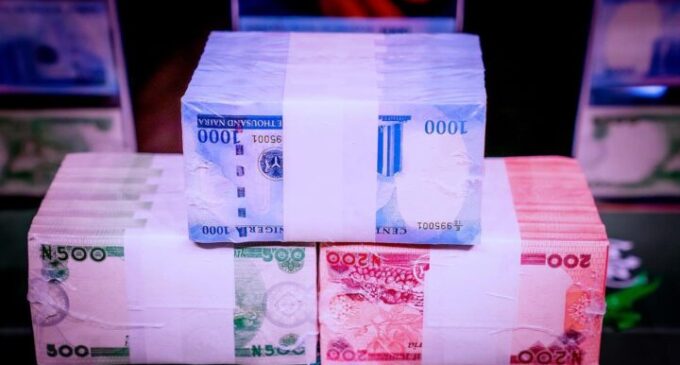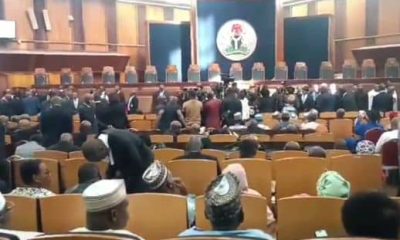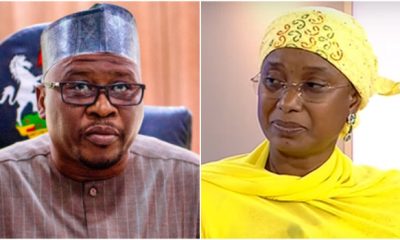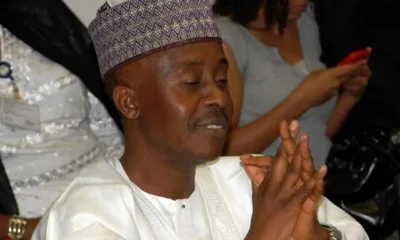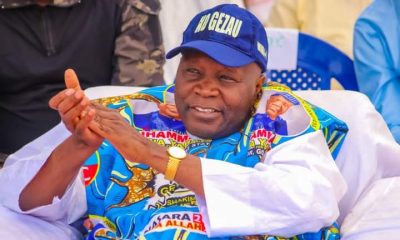The Supreme Court will today deliver judgement in the naira swap policy of the Central Bank of Nigeria (CBN).
The court had on February 22 fixed today for judgment in a suit by 17 states challenging the policy which has for months caused naira scarcity and untold hardship to Nigerians and their business.
This was after constituting a seven-member panel to entertain the suit and directing the plaintiffs ( the 17 states) to consolidate their briefs.
The plaintiffs are Kaduna, Kogi, Zamfara, Katsina, Lagos, Cross River, Ogun, Ekiti, Ondo, Sokoto, Rivers, Kano, Niger, Jigawa, Nasarawa, Plateau and Abia states.
The defendants are the Federal Government, Edo and Bayelsa states.
In their separate cases that were consolidated, the plaintiffs argued that the policy was unconstitutional and should be voided.
Lawyer to Zamfara State Government, Abiodun Owonikoko, had before then prayed to the apex court to set aside President Muhammadu Buhari’s February 16 directive that only N200 old note should be in use.
Owonikoko, a Senior Advocate of Nigeria(SAN), added that the naira redesign policy was at variance with the provision of Section 17(2)(c) of the Constitution, which says the governmental actions shall be humane.
But Kanu Agabi (SAN), Tijani Gazali (SAN), Kenneth Mozia (SAN) and Audu Anuga (SAN), who represented the plaintiffs, urged the court to dismiss the suit for want of jurisdiction and for being incompetent.
Agabi,, who argued that necessary parties were not before the court, faulted the exclusion of the governor of the CBN, Godwin Emefiele as a party in the suit.
He noted that references were made to the CBN 32 times in the plaintiffs’ originating summons and supporting affidavit, while seven reliefs were sought against the apex bank, which was not made a party in the suit.
Agabi, who said his client filed a motion on notice seeking the dismissal of Form 48 issued on the Attorney-General of the Federation (AGF) and Emefiele, added that an affidavit to show cause why Form 48 should be set aside had also been filed.
He argued that Buhari did not flout the order of the court in his February 16 nationwide broadcast, insisting that it was a necessary intervention.
Meanwhile, there appears to be no respite for Nigerians who have turned to Point of Sale (PoS) operators as their main sources of cash.
In Abuja, the POS operators yesterday charged N300 for every N1,000; N1,500 for N5,000; N1,800 for N6,000; N2,100 for N7,000; N3,000 for N10,000, N6,000 for N20,000 and N40,000 for N100,000.
An agent, who gave her name simply as Edith, justified the charges and blamed the development on the CBN.
Lamenting that cash from the banks “is not always available,” she challenged the apex bank to release cash to banks.
Edith revealed that she deposited N1.2 million with a filling station to get N1 million cash three weeks ago.
Explaining that N1.2 million for N1 million is the going charge demanded by filling stations, desperate PoS operators do not hesitate to pay more.
She flayed the CBN for threatening to prosecute PoS agents, arguing that, “anybody who needs cash, pays for it.
“CBN does not know how much we pay to get cash. If the cash was available from CBN we won’t be in this crisis. PoS operators are not to blame, the CBN should be blamed.”

 News3 years ago
News3 years ago
 Entertainment2 years ago
Entertainment2 years ago
 News3 years ago
News3 years ago
 Privacy3 years ago
Privacy3 years ago
 Sports2 years ago
Sports2 years ago
 Entertainment2 years ago
Entertainment2 years ago
 News3 years ago
News3 years ago
 Opinion3 years ago
Opinion3 years ago
